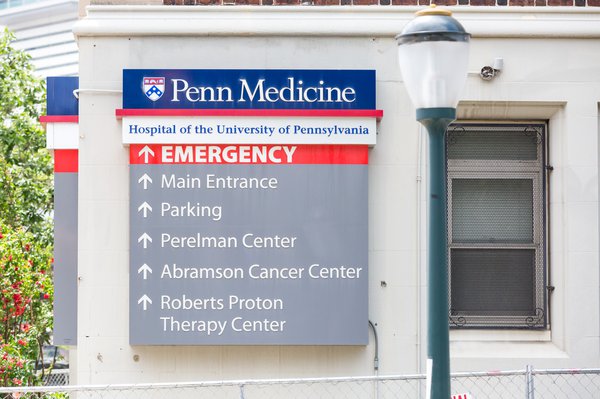U.S. News & World Report has named Penn Medicine hospitals some of the best in the country for 16 years in a row, but the health system is withdrawing its participation from the annual rankings.
Penn Medicine says it no longer will submit data for consideration, citing concerns over U.S. News & World Report's "outdated view of health care." Hospital officials argue the publication does not capture the full range of modern health services, particularly outpatient care and research. Penn Medicine says it will publish its own annual data and develop standardized self-reporting with other networks.
- MORE HEALTH
- The summer heat can cause an array of illnesses; here's what to know
- Penn Medicine, Virtua Health open proton therapy cancer treatment center in South Jersey
- Coalition that aims to improve diversity among Philly's doctors receives grant from IBX Foundation
In its announcement, Penn Medicine criticized the publication's methodology. U.S. News & World Report bases its hospital rankings on inpatient care of those with Medicare insurance, which limits the patient pool to people 65 or older or those suffering from long-term disabilities. It also does not consider outpatient care, which represents the majority of Penn Medicine's services, the health network said.
U.S. News & World Report has faced growing criticism over its various rankings, particularly from the University of Pennsylvania. Last year, Penn Carey Law announced it would no longer participate in the publication's law school rankings, following similar announcements from Harvard and Yale. And in January, the Perelman School of Medicine said it would not submit data for the best medical school rankings. The medical schools at Columbia, Stanford, Harvard and Mount Sinai also have withdrawn.
Detractors argue that U.S. News & World Report defines quality through a narrow lens and omits worthy institutions from consideration by lending weight to factors such as "reputation," one of the criteria for its college rankings. To qualify for initial consideration in its Best Hospitals list, an institution must meet one of four standards: be a teaching hospital, be affiliated with a medical school, have at least 200 beds staffed or have at least 100 beds staffed while offering at least four advanced technologies from a list of eight, including precision radiation therapies and PET/CT scanners. More than 2,000 hospitals in the country met this criteria for the 2022-2023 ranking, but after additional standards were applied, the list narrowed further. According to U.S. News & World Report, only 164 hospitals merited national ranking in one or more specialties.
"The U.S. News & World Report's 'Best Hospitals' methodology changes regularly, making it difficult to meaningfully draw conclusions about hospital quality over time, let alone the enormous amount of care provided outside the hospital," said Patrick J. Brennan, Penn Medicine's chief medical officer. "More importantly, these measures do not help us deliver better care for our patients, and they incentivize health systems to expend resources both to compete for placement in the rankings and promote their position on the list. Now is the time to focus our efforts, resources and workforce talent on delivering the very best care and measuring the most impactful elements in medicine."
The Hospital of the University of Pennsylvania and Penn Presbyterian Medical Center, which function as a joint enterprise, have routinely landed on U.S. News & World Report's list of the nation's top 20 hospitals; they were ranked No. 13 in 2022 and 2021 and No. 15 in 2020. They also were named the best hospitals in Pennsylvania last year.
Though Penn Medicine is no longer supplying data, U.S. News still may include Penn Medicine hospitals in its rankings.
But Penn Medicine says it will no longer promote its rankings on these lists or buy the U.S. News & World Report "badges" required to publicize its inclusion. It instead will develop a public data dashboard over the next year, featuring patients of all ages and in all treatment settings, including telemedicine and home care.
Follow Kristin & PhillyVoice on Twitter: @kristin_hunt
| @thePhillyVoice
Like us on Facebook: PhillyVoice
Have a news tip? Let us know.


